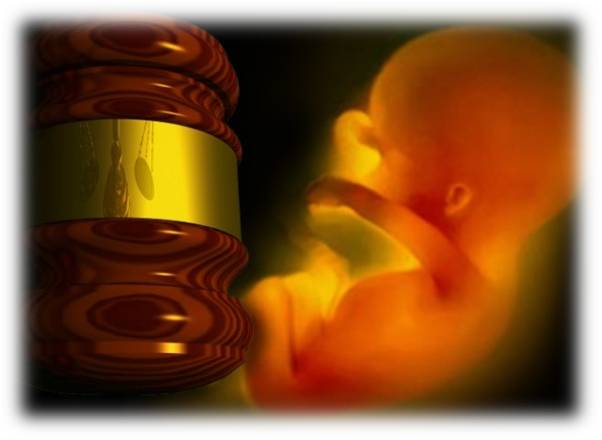Donald Trump’s vow to nominate “pro-life” justices to the U.S. Supreme Court has abortion advocacy groups scared.
Trump promised several times to nominate “pro-life” justices to the high court, while Vice President-elect Mike Pence said those justices could pave the way to consign Roe to “the ash heap of history where it belongs.”
But overturning Roe would not immediately protect unborn babies from abortion; instead, it would return the power to legislate abortion to the states.
A new report from the abortion advocacy group NARAL predicts that 13 states immediately would ban abortions if the high court overturns Roe.
“This report paints a grim picture of the current status of reproductive freedom in the United States, and if Donald Trump succeeds in appointing Supreme Court justices who overturn Roe v. Wade, our data shows that women will be even worse off,” NARAL President Ilyse Hogue said in a statement.
The pro-abortion website The Frisky reports more:
The 50-state report points out that 11 states currently have laws on the books criminally banning abortion and two more have near-total criminal bans. That means if Roe is overturned after Trump puts an anti-choice justice on the bench, women seeking abortions in Alabama, Arizona, Arkansas, Delaware, Louisiana, Massachusetts, Michigan, Mississippi, New Mexico, North Dakota, Oklahoma, South Dakota, West Virginia could be criminally punished.
This is just an estimate. Analyses vary about state abortion laws post-Roe. Back in 2012, NARAL itself presented a different estimate. Its 2012 report predicted that 17 states would ban abortions if Roe was overturned.
Keep up with the latest pro-life news and information on Twitter. Follow @LifeNewsHQ
Another estimate by the Center for Reproductive Rights predicted that 31 states and the District of Columbia would ban abortions if Roe were overturned. But a third analysis by attorney Paul Linton in the journal “Issues in Law and Medicine” in 2012 put the estimate at between eight and 11 states, according to research by Dr. Michael New, a political science professor at the University of Michigan–Dearborn.
Here’s more about the latest analysis:
Of course, the downfall of the law guaranteeing women have a right to abortion at least up until viability would drastically jeopardize women in every state’s access to the safe medical procedure, but these 13 states would be even worse. On top of just not being able to go to a clinic to end a pregnancy, women and doctors could literally be fined, go to jail, and/or have a criminal record if they attempt to get or perform the procedure.
This is only partially true. Historically, the pro-life movement and the U.S. legal system have not prosecuted women for abortions, even prior to Roe v. Wade.
While pro-life advocates yearn for the day when unborn children are protected under law and abortions are banned, the pro-life movement continuously has opposed punishing women who have abortions — instead focusing on holding abortion practitioners criminally accountable for the unborn children they kill in abortions. Current abortion bans, such as the ban on partial-birth abortions, do not punish women who have abortions.
The movement tends to view women, who frequently are pressured or coerced into having an abortion, as second victims of the abortion industry. That is how states viewed the issue prior to Roe v. Wade, too, according to research by Clarke D. Forsythe, senior legal counsel for Americans United for Life.
In 2016, Forsythe wrote:
This political claim is not an abstract question that is left to speculation—there is a long record of states treating women as the second victim of abortion in the law that can be found and read. To state the policy in legal terms, the states prosecuted the principal (the abortionist) and did not prosecute someone who might be considered an accomplice (the woman) in order to more effectively enforce the law against the principal. And that will most certainly be the state policy if the abortion issue is returned to the states.
He noted that California and 19 other states had statutes that technically made it a crime for a woman to participate in her own abortion; however, these were not enforced, and even historians who support Roe v. Wade admit this to be true.








